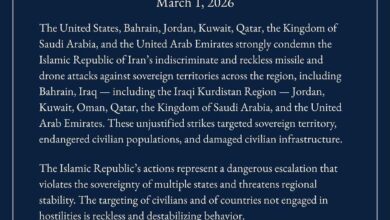Kuwait targets public spending cuts with insurance contract review
In its efforts to reduce deficits and increase non-oil revenue, the Ministry of Finance has been assessing financial waste to streamline expenditures.

• The Ministry of Finance requested information from government agencies about their employee and building insurance contracts, including values, beneficiaries, companies, terms, and contract status.
As part of its efforts to reduce deficits and boost non-oil revenue in the public budget, the Ministry of Finance has been evaluating areas of financial waste, aiming to streamline expenditures by developing a comprehensive plan to eliminate non-essential public spending.
In this regard, sources told Al Rai newspaper that the ministry recently inquired with government agencies about their insurance contracts for employees and buildings, requesting detailed information on these contracts, including their values, the number of beneficiaries, the contracted companies, and the terms of the contracts, as well as whether they are about to expire or still in the initial stage.
The sources stated that the Ministry of Finance did not provide specific reasons for requesting the data on insurance contracts but explained that discussions with officials from these agencies indicated a strong desire to increase government revenues and reduce unnecessary expenses, as long as it does not negatively impact the agencies’ ability to perform their duties. The inquiry is expected to lead to a review of insurance contracts for employees and buildings within government agencies.
The sources pointed out that the lack of a unified rule for insurance contracts concluded by government agencies, whether in terms of maximum limits or the type of contractual conditions, makes the inventory of government insurance contracts increasingly relevant to the Ministry of Finance.
The sources indicated that the ministry aims to implement real solutions that contribute to redirecting the financial behavior of government entities, by eliminating non-essential spending and rationalizing expenditure on the remaining approved items, ensuring the optimal use of allocated budget funds.
The sources expected that some items in the insurance contracts for government agencies’ employees and buildings, especially unnecessary ones, may be canceled or amended. They noted that, in response to the need to meet the required budget reductions, government agencies had previously taken the initiative to cancel insurance items that are not consistently needed and incur significant costs, such as life insurance clauses.
The sources explained that, in terms of the benefit of insurance from this item—considering the number of deaths recorded annually versus the actual cost—these entities decided to cancel this item to reduce costs in their budgets. Others adjusted their conditions to ensure a reduction in the maximum insurance cost.
The sources stated that the Ministry of Finance directed government entities to rely on strategic planning when preparing general budget estimates, emphasizing that these entities should focus on developing their revenues and improving the efficiency of debt collection. They explained that the ministry is heavily relying on the savings that can be achieved by reducing unnecessary expenses within government entities, which are being actively addressed.
What is worth mentioning in this regard is that, according to recently announced data from the Ministry of Finance, Kuwait’s budget shifted to a surplus during the first six months of the fiscal year 2024-2025. It recorded a surplus of KD 150.39 million for this period, compared to a deficit of KD 1.45 billion dinars for the same period in the previous fiscal year, supported by increased revenues and reduced expenses.












